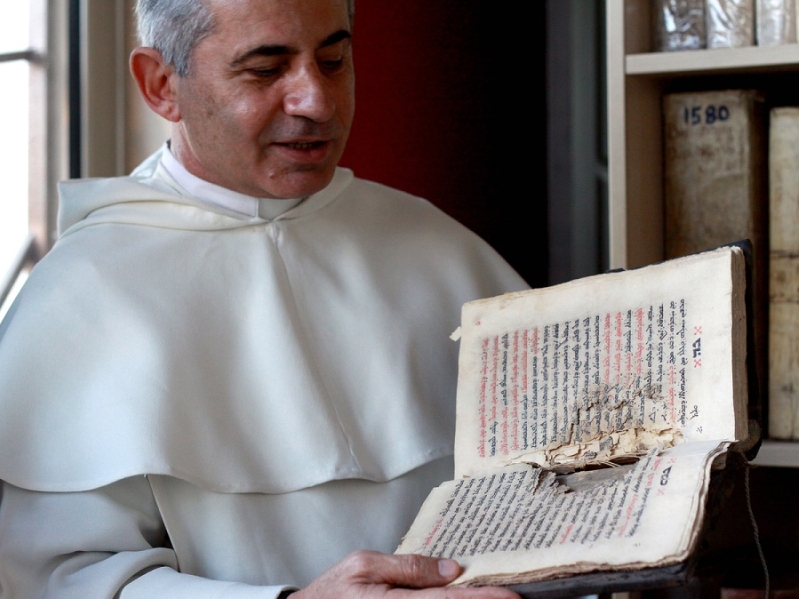
In an effort to preserve Iraq's Christian history, Father Najeeb Michael risked his life to rescue thousands of "priceless" ancient manuscripts as Islamic State militants invaded his village.
According to a report from Voice of America, the Iraqi priest fled to Irbil from his village of Qaraqosh, South East of Mosul, 10 days before ISIS invaded, accompanied by as many people as could fit in his car and more than 1,000 manuscripts.
"I felt we were in a dangerous situation and IS will attack us, that's why...I chose a big truck and put everything inside, many thousands of manuscripts, and also many thousands of documentation and archiving and precious things, and I take it out of danger," he recalled.
The manuscripts, some of which were over 1,000 years old, related to astrology, theology and philosophy.
"The manuscripts rescued by Father Najeeb are as important for the history of Iraq's culture as any museum object or archaeological site," Mike Albin, a US-based Arab world specialist, told VOA.
"His heroism in rescuing the manuscripts and his organisational skill in preserving them are a priceless contribution to the preservation of mankind's cultural heritage," he added.
Shortly after Father Najeeb's escape, Qaraqosh, which had been home to Iraq's largest Christian community, and four other Christian-majority towns were captured by Islamic State militants. The insurgents stripped all churches of ancient relics and murals, smuggling and destroying much of their plunder.
The rescued items, which include paintings from local churches, are now kept safely in an unidentified monastery in Irbil. Currently, the priest alongside some of his students, are working to digitize these historical pages in order to preserve the Christian heritage of Iraq.
Fr. Columba Stewart, executive director of the Hill Museum & Manuscript Library in Collegeville, MN, who works to preserve religious artifacts, emphasized the historic significance of the manuscripts. "Many of these texts were things that were not printed until fairly recently...particularly in some of the more isolated regions, they continued to actually copy books by hand until very, very recently," he told CSNNews.
"It's our only access to their history, to the history of these particular communities," he added. "You can infer things from archeology or buildings and you have world history for recent generations, but for the deeper history of centuries, it's all contained in these manuscript materials."
The priest fears that the 50,000 regular books he was forced to leave behind were also destroyed by ISIS, but is thankful for the history he was able to save. "If I hadn't transported and kept the manuscripts, they would have been destroyed like so many churches and monasteries in Mosul and the Nineveh plain," Father Nageeb told NPR last year.
He also told the outlet he will continue to help fellow believers and preserve Iraq's rich Christian history.
"We trust in God, and we believe that God is good. We also believe in doing good to each other. There are many minorities in Iraq, and most of them are afraid. Many things are good in Iraq, but they are hidden. We are scared to do good to each other because so much has been destroyed. But many people want to do what is good, to rebuild Iraq, and to prepare for the future."






